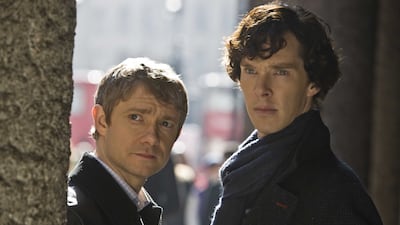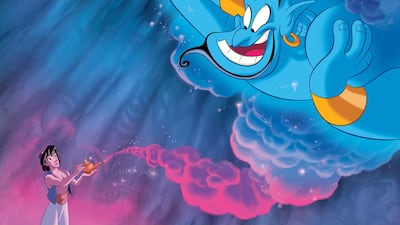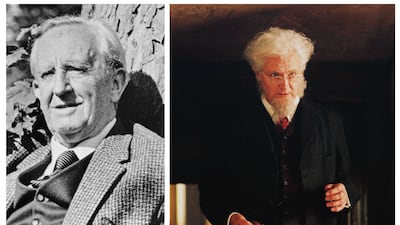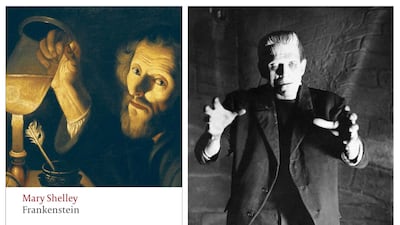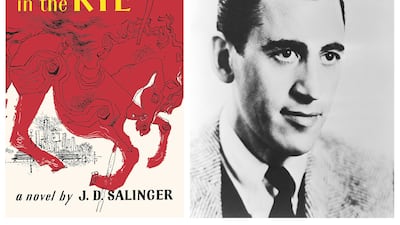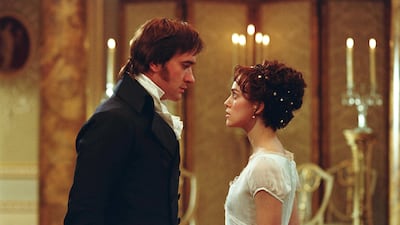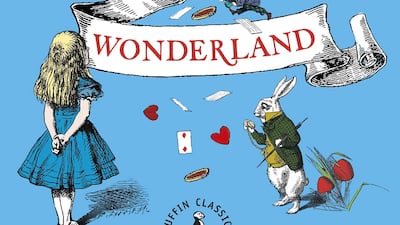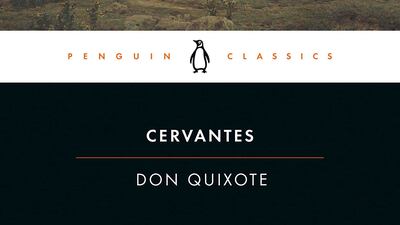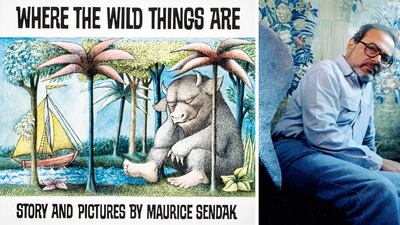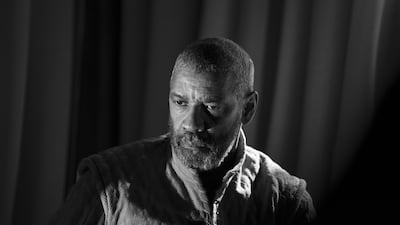Novels that have endured the test of time also come with their own lore, rumours and tales.
From Pride and Prejudice to Catcher in the Rye, there are plenty of hidden stories to be found within the pages of some of the world’s most famous books.
Here are 10 little-known literary facts.
1. Sherlock Holmes never said: ‘Elementary, my dear Watson’
It’s one of the most famous lines in film and TV adaptations of Sir Arthur Conan Doyle’s celebrated works, but Sherlock Holmes never actually said it.
There are only seven instances of the famous detective saying “elementary” across 56 short stories and four novels.
The famous phrase actually originated in PG Wodehouse’s 1915 novel Psmith, Journalist: “I fancy,” said Psmith, “that this is one of those moments when it is necessary for me to unlimber my Sherlock Holmes system… 'Elementary, my dear Watson, elementary'.”
2. Aladdin from ‘1001 Arabian Nights’ is Chinese
The character of Aladdin is so entrenched in popular culture it has almost been forgotten he was originally from the Far East.
The original book about Aladdin begins: “Aladdin was a little Chinese boy”, and the tale was set in China, centred around a lazy little boy who lived at home with his mother.
The original tales do feature many Middle Eastern elements, and Disney’s 1992 animated film drew inspiration from the city of Baghdad to create the magical metropolis of Agrabah.
3. Professor Digory Kirke in ‘The Chronicles of Narnia’ is based on JRR Tolkien
The Chronicles of Narnia author, CS Lewis based the Pegasus-riding professor who appears in four of the Narnia books on Lord of the Rings writer, JRR Tolkien.
The pair became close friends after meeting at Oxford University in the 1920s, where they were both members of the English faculty.
They bonded over their experiences in the First World War, and joined the celebrated Oxford literary group The Inklings.
4. The monster is not called Frankenstein
A big faux pas in literature is referring to the monster as Frankenstein, when in fact Victor Frankenstein was the creator of the cobbled together "wretch".
In Mary Shelley’s classic 1818 novel, also known as The Modern Prometheus, the monster created in Frankenstein’s lab is never given a name.
However, when speaking to his creator, he refers to himself as the “Adam of your labours", a reference to Adam in the story of the Garden of Eden.
5. ‘The Catcher in the Rye’ turned author JD Salinger into a recluse
Creating the ultimate literary symbol for disenchanted youth in Holden Caulfield took its toll on New York-born writer JD Salinger, who became a recluse soon after its 1951 release.
The novel, which follows 16-year-old Caulfield’s experiences in New York City after he is expelled from school, was banned in several countries and achieved notoriety when it was revealed John Lennon’s killer Mark Chapman called the book his “statement” before murdering the Beatle.
Salinger retreated to seclusion in Cornish, New Hampshire, never allowing the book to be turned into a film.
6. ‘Pride and Prejudice’ was originally called ‘First Impressions’
One of history's most beloved books underwent significant rewrites and a title change to become Austen’s masterpiece.
The English novelist wrote the first draft of First Impressions between October 1796 and August 1797, but it was rejected by the London publisher.
Austen went back to the drawing board, changing the book from a series of letters into a third-person novel called Pride and Prejudice, and the rest is history.
7. ‘Alice's Adventures in Wonderland’ was banned in China
While many books over the years have been banned in many different countries, Lewis Carroll’s 1865 novel, Alice's Adventures in Wonderland, wasn’t blocked because of political or religious beliefs.
Rather the book, which follows a young girl called Alice down a rabbit hole into a fantasy land, was deemed offensive in China due to the animals being able to talk and behave like humans. The Governor of the Hunan province dubbed the behaviour an “insult” to people.
8. ‘Don Quixote’ is the bestselling novel of all time
While works such as The Da Vinci Code and Harry Potter have sold in their millions, the bestselling novel in history is widely believed to be Don Quixote, the Spanish epic by Miguel de Cervantes, published in two parts in 1605 and 1615.
Thought to have sold more than 500 million copies, it is one of the most-translated books, following the adventures of erstwhile chivalric knight Don Quixote and his droll sidekick Sancho Panza.
9. The Things in ‘Where the Wild Things Are’ were originally horses
Having long cemented its status as one of the most popular and beloved children’s books, Where the Wild Things Are has sold millions worldwide.
Created by US author and illustrator Maurice Sendak and published in 1963, the titular “Things” started out life as horses, when Sendak pitched a book called Where the Wild Horses Are.
Later admitting to his publisher that he couldn’t draw horses, when asked what he could sketch he replied “Things”. The “Things” were based on Sendak's relatives.
10. Ghosts appear in only four Shakespeare plays
The Bard’s plays have a reputation for being filled with the supernatural. And, while fairies abound in the likes of A Midsummer Night’s Dream, only four of William Shakespeare’s plays feature ghosts.
In Julius Caesar Caesar’s ghost appears to Brutus; in Richard III no fewer than 11 spectres turn up to haunt the king; Hamlet is terrorised by the ghost of his father; and Macbeth by Banquo.
UAE%20Warriors%20fight%20card
%3Cp%3EMain%20Event%0D%3A%20Catchweight%20165lb%0D%3Cbr%3EMartun%20Mezhulmyan%20(ARM)%20v%20Acoidan%20Duque%20(ESP)%0D%3Cbr%3ECo-Main%20Event%0D%3A%20Bantamweight%0D%3Cbr%3EFelipe%20Pereira%20(BRA)%20v%20Azamat%20Kerefov%20(RUS)%0D%3Cbr%3EMiddleweight%0D%3Cbr%3EMohamad%20Osseili%20(LEB)%20v%20Amir%20Fazli%20(IRN)%0D%3Cbr%3ECatchweight%20161%20lb%0D%3Cbr%3EZhu%20Rong%20(CHI)%20vs.%20Felipe%20Maia%20(BRA)%0D%3Cbr%3ECatchweight%20176%20lb%0D%3Cbr%3EHandesson%20Ferreira%20(BRA)%20vs.%20Ion%20Surdu%20(MDA)%0D%3Cbr%3ECatchweight%20168%20lb%0D%3Cbr%3EArtur%20Zaynukov%20(RUS)%20v%20Sargis%20Vardanyan%20(ARM)%0D%3Cbr%3EFeatherweight%0D%3Cbr%3EIlkhom%20Nazimov%20(UZB)%20v%20Khazar%20Rustamov%20(AZE)%0D%3Cbr%3EBantamweight%0D%3Cbr%3EJalal%20Al%20Daaja%20(JOR)%20v%20Mark%20Alcoba%20(PHI)%0D%3Cbr%3ELightweight%0D%3Cbr%3EJakhongir%20Jumaev%20(UZB)%20v%20Dylan%20Salvador%20(FRA)%0D%3Cbr%3ECatchweight%20143%20lb%0D%3Cbr%3EHikaru%20Yoshino%20(JPN)%20v%20Djamal%20Rustem%20(TUR)%0D%3Cbr%3EFeatherweight%0D%3Cbr%3EJavohir%20Imamov%20(UZB)%20v%20Ulan%20Tamgabaev%20(KAZ)%0D%3Cbr%3ECatchweight%20120%20lb%0D%3Cbr%3ELarissa%20Carvalho%20(BRA)%20v%20Elin%20Oberg%20(SWE)%0D%3Cbr%3ELightweight%0D%3Cbr%3EHussein%20Salem%20(IRQ)%20v%20Arlan%20Faurillo%20(PHI)%3C%2Fp%3E%0A
The specs
Engine: 2.0-litre 4cyl turbo
Power: 261hp at 5,500rpm
Torque: 405Nm at 1,750-3,500rpm
Transmission: 9-speed auto
Fuel consumption: 6.9L/100km
On sale: Now
Price: From Dh117,059
BMW M5 specs
Engine: 4.4-litre twin-turbo V-8 petrol enging with additional electric motor
Power: 727hp
Torque: 1,000Nm
Transmission: 8-speed auto
Fuel consumption: 10.6L/100km
On sale: Now
Price: From Dh650,000
Who has lived at The Bishops Avenue?
- George Sainsbury of the supermarket dynasty, sugar magnate William Park Lyle and actress Dame Gracie Fields were residents in the 1930s when the street was only known as ‘Millionaires’ Row’.
- Then came the international super rich, including the last king of Greece, Constantine II, the Sultan of Brunei and Indian steel magnate Lakshmi Mittal who was at one point ranked the third richest person in the world.
- Turkish tycoon Halis Torprak sold his mansion for £50m in 2008 after spending just two days there. The House of Saud sold 10 properties on the road in 2013 for almost £80m.
- Other residents have included Iraqi businessman Nemir Kirdar, singer Ariana Grande, holiday camp impresario Sir Billy Butlin, businessman Asil Nadir, Paul McCartney’s former wife Heather Mills.
Hunting park to luxury living
- Land was originally the Bishop of London's hunting park, hence the name
- The road was laid out in the mid 19th Century, meandering through woodland and farmland
- Its earliest houses at the turn of the 20th Century were substantial detached properties with extensive grounds
Ticket prices
- Golden circle - Dh995
- Floor Standing - Dh495
- Lower Bowl Platinum - Dh95
- Lower Bowl premium - Dh795
- Lower Bowl Plus - Dh695
- Lower Bowl Standard- Dh595
- Upper Bowl Premium - Dh395
- Upper Bowl standard - Dh295
The%C2%A0specs%20
%3Cp%3E%3Cstrong%3EEngine%3A%20%3C%2Fstrong%3Etwo%20permanent%20magnet%20synchronous%20motors%3Cbr%3E%3Cstrong%3ETransmission%3A%20%3C%2Fstrong%3Etwo-speed%3Cbr%3E%3Cstrong%3EPower%3A%20%3C%2Fstrong%3E625hp%3Cbr%3E%3Cstrong%3ETorque%3A%20%3C%2Fstrong%3E850Nm%3Cbr%3E%3Cstrong%3ERange%3A%20%3C%2Fstrong%3E456km%3Cbr%3E%3Cstrong%3EPrice%3A%20%3C%2Fstrong%3Efrom%20Dh737%2C480%3Cbr%3E%3Cstrong%3EOn%20sale%3A%20%3C%2Fstrong%3Enow%3C%2Fp%3E%0A
The specs
- Engine: 3.9-litre twin-turbo V8
- Power: 640hp
- Torque: 760nm
- On sale: 2026
- Price: Not announced yet
More from Neighbourhood Watch:
The specs: 2018 Maxus T60
Price, base / as tested: Dh48,000
Engine: 2.4-litre four-cylinder
Power: 136hp @ 1,600rpm
Torque: 360Nm @ 1,600 rpm
Transmission: Five-speed manual
Fuel consumption, combined: 9.1L / 100km
Jetour T1 specs
Engine: 2-litre turbocharged
Power: 254hp
Torque: 390Nm
Price: From Dh126,000
Available: Now
Heather, the Totality
Matthew Weiner,
Canongate
The Vile
Starring: Bdoor Mohammad, Jasem Alkharraz, Iman Tarik, Sarah Taibah
Director: Majid Al Ansari
Rating: 4/5
GIANT REVIEW
Starring: Amir El-Masry, Pierce Brosnan
Director: Athale
Rating: 4/5
Islamophobia definition
A widely accepted definition was made by the All Party Parliamentary Group on British Muslims in 2019: “Islamophobia is rooted in racism and is a type of racism that targets expressions of Muslimness or perceived Muslimness.” It further defines it as “inciting hatred or violence against Muslims”.
Our family matters legal consultant
Name: Hassan Mohsen Elhais
Position: legal consultant with Al Rowaad Advocates and Legal Consultants.
The%20specs%20
%3Cp%3E%3Cstrong%3EEngine%3A%20%3C%2Fstrong%3E2.0-litre%204cyl%20turbo%0D%3Cbr%3E%3Cstrong%3EPower%3A%20%3C%2Fstrong%3E261hp%20at%205%2C500rpm%0D%3Cbr%3E%3Cstrong%3ETorque%3A%20%3C%2Fstrong%3E400Nm%20at%201%2C750-4%2C000rpm%0D%3Cbr%3E%3Cstrong%3ETransmission%3A%20%3C%2Fstrong%3E7-speed%20dual-clutch%20auto%0D%3Cbr%3E%3Cstrong%3EFuel%20consumption%3A%20%3C%2Fstrong%3E10.5L%2F100km%0D%3Cbr%3E%3Cstrong%3EOn%20sale%3A%20%3C%2Fstrong%3ENow%0D%3Cbr%3E%3Cstrong%3EPrice%3A%20%3C%2Fstrong%3EFrom%20Dh129%2C999%20(VX%20Luxury)%3B%20from%20Dh149%2C999%20(VX%20Black%20Gold)%3C%2Fp%3E%0A
How to apply for a drone permit
- Individuals must register on UAE Drone app or website using their UAE Pass
- Add all their personal details, including name, nationality, passport number, Emiratis ID, email and phone number
- Upload the training certificate from a centre accredited by the GCAA
- Submit their request
What are the regulations?
- Fly it within visual line of sight
- Never over populated areas
- Ensure maximum flying height of 400 feet (122 metres) above ground level is not crossed
- Users must avoid flying over restricted areas listed on the UAE Drone app
- Only fly the drone during the day, and never at night
- Should have a live feed of the drone flight
- Drones must weigh 5 kg or less
How The Debt Panel's advice helped readers in 2019
December 11: 'My husband died, so what happens to the Dh240,000 he owes in the UAE?'
JL, a housewife from India, wrote to us about her husband, who died earlier this month. He left behind an outstanding loan of Dh240,000 and she was hoping to pay it off with an insurance policy he had taken out. She also wanted to recover some of her husband’s end-of-service liabilities to help support her and her son.
“I have no words to thank you for helping me out,” she wrote to The Debt Panel after receiving the panellists' comments. “The advice has given me an idea of the present status of the loan and how to take it up further. I will draft a letter and send it to the email ID on the bank’s website along with the death certificate. I hope and pray to find a way out of this.”
November 26: ‘I owe Dh100,000 because my employer has not paid me for a year’
SL, a financial services employee from India, left the UAE in June after quitting his job because his employer had not paid him since November 2018. He owes Dh103,800 on four debts and was told by the panellists he may be able to use the insolvency law to solve his issue.
SL thanked the panellists for their efforts. "Indeed, I have some clarity on the consequence of the case and the next steps to take regarding my situation," he says. "Hopefully, I will be able to provide a positive testimony soon."
October 15: 'I lost my job and left the UAE owing Dh71,000. Can I return?'
MS, an energy sector employee from South Africa, left the UAE in August after losing his Dh12,000 job. He was struggling to meet the repayments while securing a new position in the UAE and feared he would be detained if he returned. He has now secured a new job and will return to the Emirates this month.
“The insolvency law is indeed a relief to hear,” he says. "I will not apply for insolvency at this stage. I have been able to pay something towards my loan and credit card. As it stands, I only have a one-month deficit, which I will be able to recover by the end of December."
More from Rashmee Roshan Lall
The%20Hunger%20Games%3A%20The%20Ballad%20of%20Songbirds%20%26%20Snakes
%3Cp%3E%3Cstrong%3EDirector%3A%3C%2Fstrong%3E%C2%A0Francis%20Lawrence%3C%2Fp%3E%0A%3Cp%3E%3Cstrong%3EStars%3A%C2%A0%3C%2Fstrong%3ERachel%20Zegler%2C%20Peter%20Dinklage%2C%20Viola%20Davis%2C%20Tom%20Blyth%3C%2Fp%3E%0A%3Cp%3E%3Cstrong%3ERating%3A%20%3C%2Fstrong%3E3%2F5%3C%2Fp%3E%0A
COMPANY%20PROFILE
%3Cp%3E%3Cstrong%3ECompany%20name%3A%3C%2Fstrong%3E%20Switch%20Foods%3Cbr%3E%3Cstrong%3EStarted%3A%3C%2Fstrong%3E%202022%3Cbr%3E%3Cstrong%3EFounder%3A%3C%2Fstrong%3E%20Edward%20Hamod%3Cbr%3E%3Cstrong%3EBased%3A%3C%2Fstrong%3E%20Abu%20Dhabi%2C%20UAE%3Cbr%3E%3Cstrong%3EIndustry%3A%3C%2Fstrong%3E%20Plant-based%20meat%20production%3Cbr%3E%3Cstrong%3ENumber%20of%20employees%3A%3C%2Fstrong%3E%2034%3Cbr%3E%3Cstrong%3EFunding%3A%3C%2Fstrong%3E%20%246.5%20million%3Cbr%3E%3Cstrong%3EFunding%20round%3A%3C%2Fstrong%3E%20Seed%3Cbr%3E%3Cstrong%3EInvestors%3A%3C%2Fstrong%3E%20Based%20in%20US%20and%20across%20Middle%20East%3C%2Fp%3E%0A
Specs
Engine: Duel electric motors
Power: 659hp
Torque: 1075Nm
On sale: Available for pre-order now
Price: On request
Army of the Dead
Director: Zack Snyder
Stars: Dave Bautista, Ella Purnell, Omari Hardwick, Ana de la Reguera
Three stars
What are the influencer academy modules?
- Mastery of audio-visual content creation.
- Cinematography, shots and movement.
- All aspects of post-production.
- Emerging technologies and VFX with AI and CGI.
- Understanding of marketing objectives and audience engagement.
- Tourism industry knowledge.
- Professional ethics.
Company%20profile
%3Cp%3ECompany%20name%3A%20Shipsy%3Cbr%3EYear%20of%20inception%3A%202015%3Cbr%3EFounders%3A%20Soham%20Chokshi%2C%20Dhruv%20Agrawal%2C%20Harsh%20Kumar%20and%20Himanshu%20Gupta%3Cbr%3EBased%3A%20India%2C%20UAE%20and%20Indonesia%3Cbr%3ESector%3A%20logistics%3Cbr%3ESize%3A%20more%20than%20350%20employees%3Cbr%3EFunding%20received%20so%20far%3A%20%2431%20million%20in%20series%20A%20and%20B%20rounds%3Cbr%3EInvestors%3A%20Info%20Edge%2C%20Sequoia%20Capital%E2%80%99s%20Surge%2C%20A91%20Partners%20and%20Z3%20Partners%3C%2Fp%3E%0A
SPEC%20SHEET%3A%20APPLE%20M3%20MACBOOK%20AIR%20(13%22)
%3Cp%3E%3Cstrong%3EProcessor%3A%3C%2Fstrong%3E%20Apple%20M3%2C%208-core%20CPU%2C%20up%20to%2010-core%20CPU%2C%2016-core%20Neural%20Engine%3C%2Fp%3E%0A%3Cp%3E%3Cstrong%3EDisplay%3A%3C%2Fstrong%3E%2013.6-inch%20Liquid%20Retina%2C%202560%20x%201664%2C%20224ppi%2C%20500%20nits%2C%20True%20Tone%2C%20wide%20colour%3C%2Fp%3E%0A%3Cp%3E%3Cstrong%3EMemory%3A%3C%2Fstrong%3E%208%2F16%2F24GB%3C%2Fp%3E%0A%3Cp%3E%3Cstrong%3EStorage%3A%3C%2Fstrong%3E%20256%2F512GB%20%2F%201%2F2TB%3C%2Fp%3E%0A%3Cp%3E%3Cstrong%3EI%2FO%3A%3C%2Fstrong%3E%20Thunderbolt%203%2FUSB-4%20(2)%2C%203.5mm%20audio%2C%20Touch%20ID%3C%2Fp%3E%0A%3Cp%3E%3Cstrong%3EConnectivity%3A%3C%2Fstrong%3E%20Wi-Fi%206E%2C%20Bluetooth%205.3%3C%2Fp%3E%0A%3Cp%3E%3Cstrong%3EBattery%3A%3C%2Fstrong%3E%2052.6Wh%20lithium-polymer%2C%20up%20to%2018%20hours%2C%20MagSafe%20charging%3C%2Fp%3E%0A%3Cp%3E%3Cstrong%3ECamera%3A%3C%2Fstrong%3E%201080p%20FaceTime%20HD%3C%2Fp%3E%0A%3Cp%3E%3Cstrong%3EVideo%3A%3C%2Fstrong%3E%20Support%20for%20Apple%20ProRes%2C%20HDR%20with%20Dolby%20Vision%2C%20HDR10%3C%2Fp%3E%0A%3Cp%3E%3Cstrong%3EAudio%3A%3C%2Fstrong%3E%204-speaker%20system%2C%20wide%20stereo%2C%20support%20for%20Dolby%20Atmos%2C%20Spatial%20Audio%20and%20dynamic%20head%20tracking%20(with%20AirPods)%3C%2Fp%3E%0A%3Cp%3E%3Cstrong%3EColours%3A%3C%2Fstrong%3E%20Midnight%2C%20silver%2C%20space%20grey%2C%20starlight%3C%2Fp%3E%0A%3Cp%3E%3Cstrong%3EIn%20the%20box%3A%3C%2Fstrong%3E%20MacBook%20Air%2C%2030W%2F35W%20dual-port%2F70w%20power%20adapter%2C%20USB-C-to-MagSafe%20cable%2C%202%20Apple%20stickers%3C%2Fp%3E%0A%3Cp%3E%3Cstrong%3EPrice%3A%3C%2Fstrong%3E%20From%20Dh4%2C599%3C%2Fp%3E%0A
RESULT
Bayer Leverkusen 2 Bayern Munich 4
Leverkusen: Alario (9'), Wirtz (89')
Bayern: Coman (27'), Goretzka (42'), Gnabry (45'), Lewandowski (66')




